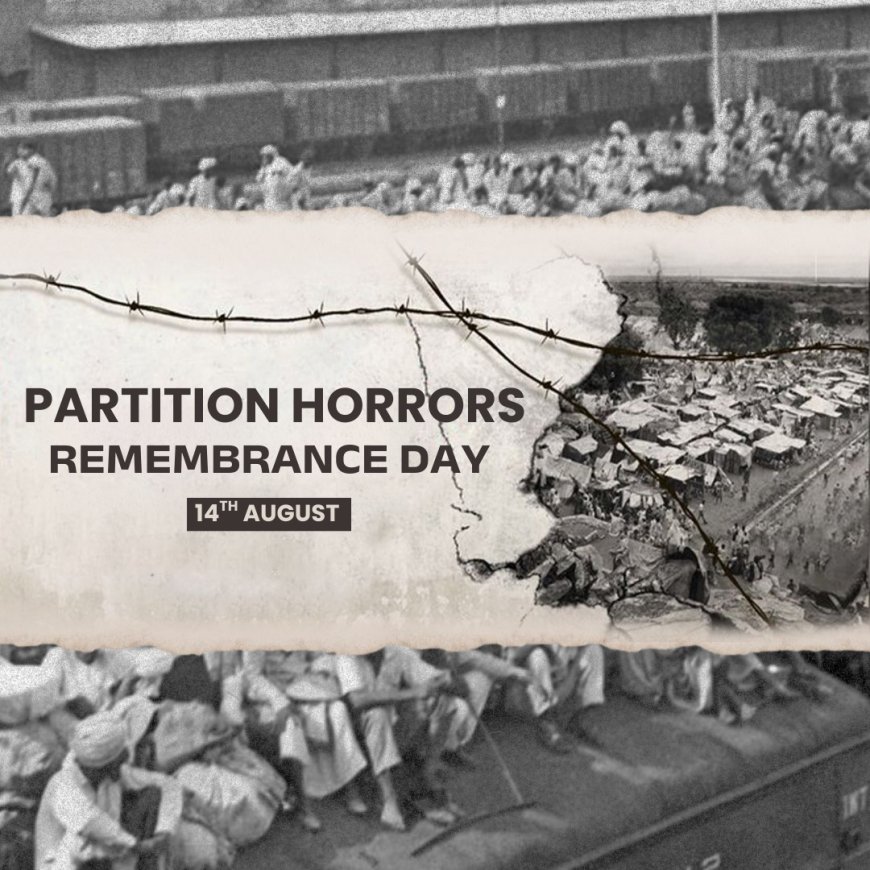Remembering Upheaval, Pain: PM Modi on Partition Horrors Remembrance Day
PM Modi honors Partition Horrors Remembrance Day, recalling the pain, struggles, and resilience of millions, urging unity and harmony for the future.

Introduction
Partition Horrors Remembrance Day is observed every year on August 14 to recall one of the most tragic events in India’s history—the Partition of 1947. Prime Minister Narendra Modi, in his recent message, reflected on the immense pain, suffering, and displacement that millions of Indians endured during this period. His remarks aim to keep alive the memory of the struggles faced by those who lost their homes, families, and communities in the violence that followed.
Historical Background
The Partition of India in 1947 led to the creation of two independent nations—India and Pakistan. This was accompanied by one of the largest mass migrations in human history, with over 14 million people displaced. The division, based on religious lines, triggered unprecedented communal violence, leading to the deaths of an estimated one to two million people. Millions faced abductions, assaults, and the loss of ancestral property.
Reason Behind Observance
Partition Horrors Remembrance Day was instituted to ensure that future generations remember the human cost of division. It is not just a day of mourning but also a reminder of the resilience of those who rebuilt their lives from nothing. The day also serves as a call for unity, peace, and social harmony to prevent such tragedies from recurring.
Why PM Modi Reacted
PM Modi’s remarks underline the importance of acknowledging historical wounds while working towards strengthening national unity. His statement reflects the government’s intent to keep the memory alive, especially for younger citizens who may only know Partition through history books. By remembering the pain, he suggests, the nation can foster empathy and avoid divisions in the future.
Problems and Struggles During Partition
-
Mass Displacement: Millions left their homes overnight, carrying only what they could.
-
Violence: Widespread riots, massacres, and communal clashes devastated communities.
-
Loss of Livelihood: Farmers, traders, and artisans lost everything they had built over generations.
-
Trauma: Families were torn apart, and the psychological scars lasted decades.
Significance of the Day
-
Historical Awareness: Ensures that the true cost of Partition is remembered.
-
Unity & Harmony: Encourages a commitment to communal peace.
-
Tribute: Honors the resilience and sacrifices of those who suffered.
Advantages of Observance
-
Educates youth about the importance of national unity.
-
Strengthens social harmony by remembering the dangers of division.
-
Preserves survivor stories for historical accuracy.
Disadvantages / Concerns
-
Risk of reopening old wounds if not observed with sensitivity.
-
Political misuse of the event for present-day agendas.
Final Thoughts & Conclusion
Partition Horrors Remembrance Day is not merely a historical marker but a moral responsibility. It reminds us that divisions based on religion, caste, or region can have devastating consequences. PM Modi’s emphasis on the “upheaval and pain” serves as both a tribute to survivors and a caution to future generations. Observed with respect and unity, the day can be a powerful instrument to strengthen India’s social fabric and ensure that such tragedies are never repeated.

 Ellofacts
Ellofacts 





